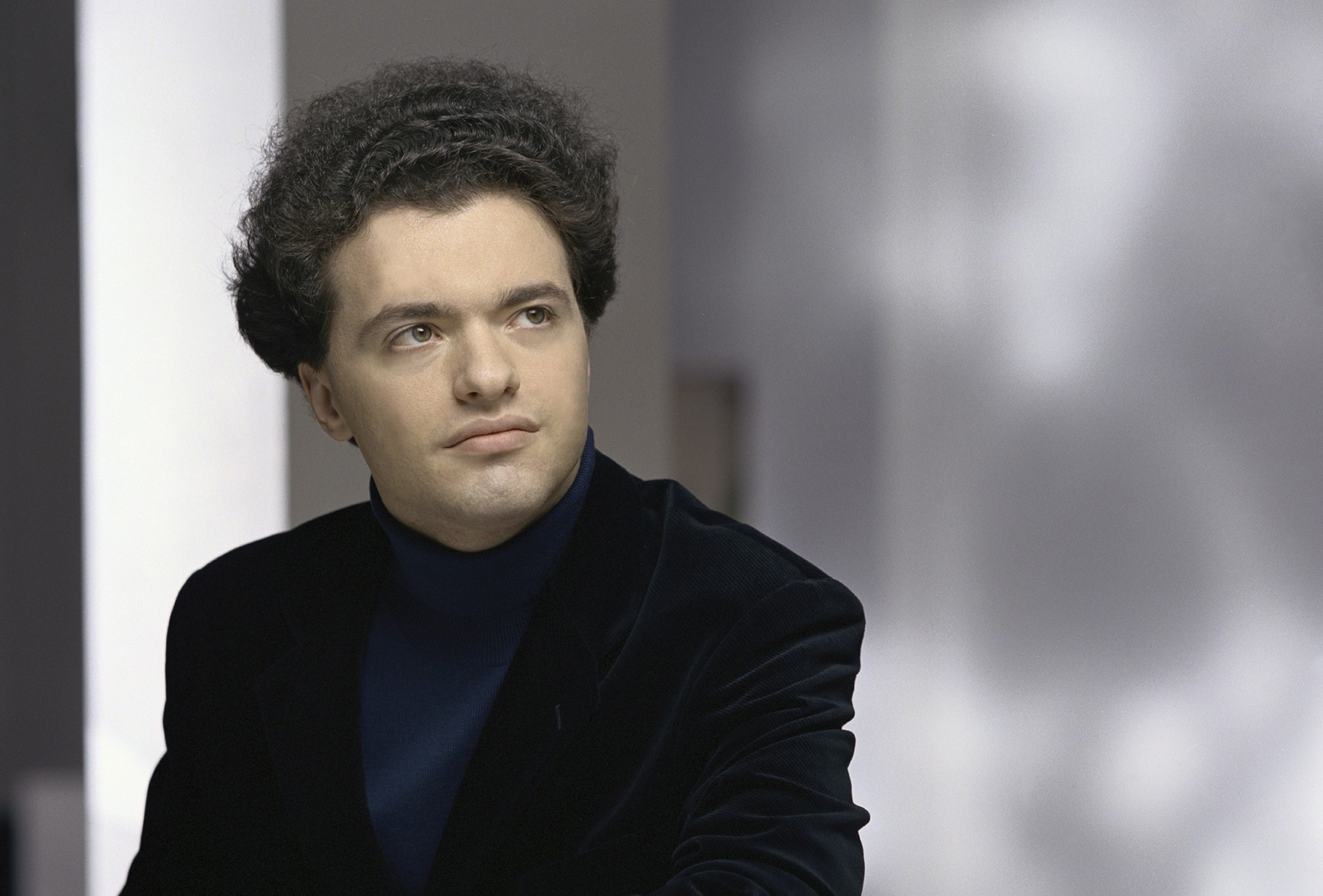Solo Selections We Will Hear from Evgeny Kissin
May 22, 2023

Many of our concert program notes are written by Zaide Pixley, PhD, Professor Emerita, Kalamazoo College, and the Renee Fleming & Evgeny Kissin concert on May 27 is no exception. Here we are spotlighting the solo piano selections that Mr. Kissin will play in his Gilmore debut. Buy your concert tickets today so you can enjoy the full concert experience, including a 7 pm concert preview by Ms. Pixley, included with your ticket.
Franz Liszt’s Sposalizio from Années de Pèlerinage (The marriage of the Virgin from Years of Pilgrimage, Vol. II, composed 1838) was inspired by Raphael’s 1504 painting Lo Sposalizio della vergine, which depicts the moment St. Joseph puts a ring on the Virgin Mary’s finger. This image doubtless appealed to Liszt, a devout Catholic who had once considered the priesthood. Later in life he settled in Rome and took minor orders in the church, living for a time in the Vatican. He became known as Abbé Liszt. The story of Mary’s union with Joseph is found not in the Bible, but in The Golden Legend, a 13th-century compendium of lives of the saints, which served as a primary source for Medieval and Renaissance painters. Liszt sets the work in E major, a key he often chose for religious subjects. It begins with a solitary melody in falling fifths, answered by a tender sigh (perhaps suggesting the couple’s devotion). A new hymn-like middle section, suggesting Gregorian chant, grows in intensity; cascades of notes bring back the introspective opening theme to end this meditative work.
On the surface, Liszt’s Valse Oubliée (composed 1881) looks back to the waltzes of Chopin, but its intensity prefigures Ravel’s manic La Valse (1920). It is what his biographer Alan Walker calls the music of Liszt’s old age, in which “a troubled spirit seeks consolation in the memories of the past.” Despite his many successes, Walker writes, Liszt “wrestled daily with the demons of desolation, despair, and death… which would descend on him without warning and threaten to overwhelm everything that he did.” Liszt told a friend, “I carry a deep sadness of the heart which must now and then break out in sound.” He would sardonically call these pieces “forgotten,” even before they were played.
Gilmore Artist Kirill Gerstein recently observed in The New York Times that Sergei Rachmaninoff (whose 150th birthday was May 1), has sometimes been considered “an anachronistic composer totally lost in the 20th century.” Nevertheless, Gerstein adds, his music has “a real core of aesthetic value” and continues to be “rich enough to nourish and feed us.” The pieces on tonight’s program demonstrate this in full. Rachmaninoff’s Morceaux de Fantaisie Op. 3, Nos. 3 and 5 were written in 1892 when he was just nineteen. A newly minted graduate of the Moscow Conservatory, where he had earned the Gold Medal in composition. It originally consisted of four pieces – Élégie, Prélude, Mélodie, and Polichinelle – but just as he was finishing the set, no less a personage than Tchaikovsky pronounced him to be one of the most outstanding of Russia’s rising composers. Rachmaninoff was so enchanted, he recalled, that “I sat down at the piano and composed a fifth piece [the Sérénade]. So now I will publish five pieces.” He premiered the set in Kharkov, Ukraine, on December 27, 1892.
Two months later he gave a copy of the just published work to Tchaikovsky, who was especially taken with Prélude and Mélodie. Rachmaninoff’s “lyrical inspiration is matchless,” his biographer Geoffrey Norris notes. Consider Mélodie: a song without words, featuring a quintessentially lovely melody. Its long sustained notes make a brilliant contrast to the gently moving accompaniment surrounding it, as it travels from voice to instrument and back in sweet conversation. In the joyous fifth piece, Sérénade, the piano’s strummed chords suggest the guitar. The irresistible rhythm gives it a Spanish feel, which must have sounded deliciously exotic to Rachmaninoff’s contemporaries.
To learn more, join us for the concert on Sunday, May 27, 2023.
